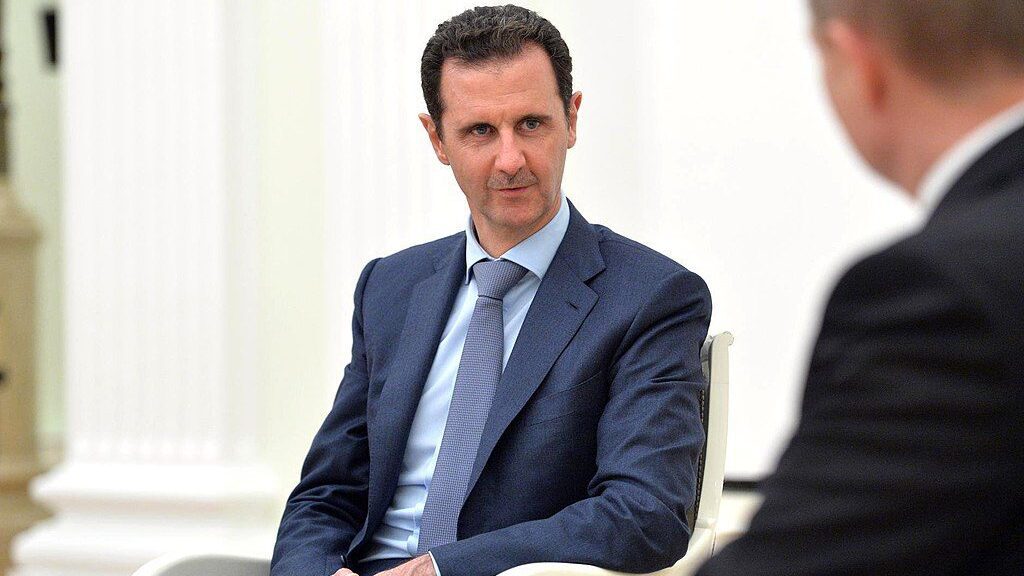
Syria’s President Bashar al-Assad
Photo: Kremlin.ru, CC BY 4.0, via Wikimedia Commons
Closing borders and ramping up deportations are no longer exclusive to the conservative mindset in Europe as mainstream parties have finally begun listening to voters.
Most leaders are set to arrive at this week’s European Council Summit in Brussels with different proposals on how to toughen up the EU’s migration policy, and even the European Commission has seemingly budged under pressure and has prepared an entirely new strategy to “fill the gaps” left behind by earlier legislation. The new proposals from the Commission focus on streamlining deportations and outsourcing asylum procedures to third countries outside of the Union.
However, one of the boldest initiatives, at least from a diplomatic standpoint, comes from Rome. Italy, along with a coalition of like-minded countries, including Austria and Hungary. It will push for the EU to reopen diplomatic ties with President Assad’s Syria after 13 years of global isolation following the 2011 outbreak of the (ongoing, albeit frozen) Syrian civil war, Politico reports.
“It is necessary to review the European Union Strategy for Syria and to work with all actors to create the conditions for Syrian refugees to return to their homeland in a voluntary, safe, and sustainable way,” Italian Prime Minister Giorgia Meloni said on Tuesday while briefing the Italian Senate about her priorities at the upcoming summit.
The EU cut ties with Damascus after Assad’s crackdown on Arab Spring protesters in 2011 sparked a civil war with multiple rebel groups. The president was accused of violating human rights by torturing enemy combatants and using chemical weapons even on civilians and was therefore completely isolated on the global scene—save by a few countries, whose geopolitical interests kept them on the opposing side of the U.S.-backed rebels.
Partly due to Russia’s involvement, the Assad regime survived and managed to more or less stabilize the country. The president famously told journalists in 2016, “We encourage every Syrian to come back to Syria.” The question of whether the country could be recognized as ‘safe’ again has come up in Europe now and again since; recently a German court ruled that certain parts of Syria were safe enough to deport convicted migrant criminals.
Meloni’s push is not the first of its kind either. In July, a group of EU member states—Austria, Italy, Czechia, Slovakia, Slovenia, Greece, Croatia, and Cyprus—jointly called on the EU’s foreign affairs chief Josep Borrell to initiate a review of the EU’s Syria strategy, with the goal of improving the local humanitarian situation and thus making at least certain regions of the country safe enough for migrants to return.
Borrell was then quick to dismiss the notion, even though he didn’t completely reject the idea of a discussion. “How the Syrian regime has been operating for decades is well-known and documented, including with the direct support of both Russia and Iran,” the diplomat replied in a letter in August. “That said, rest assured that the EU has always been ready to explore ways to better support the Syrian people and its legitimate aspirations.”
Since then, however, Israel’s widening war with Hezbollah in southern Lebanon changed some perspectives—with around 200,000 people fleeing to Syria just since the beginning of October—and that’s why Meloni is ready to raise the issue again, now at the highest level in Brussels.
“The situation in the Middle East has completely changed the discussion,” an unnamed EU diplomat said, referring to the war in Lebanon. Still, it’s unclear what level of normalization can be achieved without whitewashing Assad of his regime’s alleged crimes, another added. “There is no one who says: we will pick up the phone to call Assad,” he said. “Nobody dares to raise that, but it is a hidden suggestion by some.”
